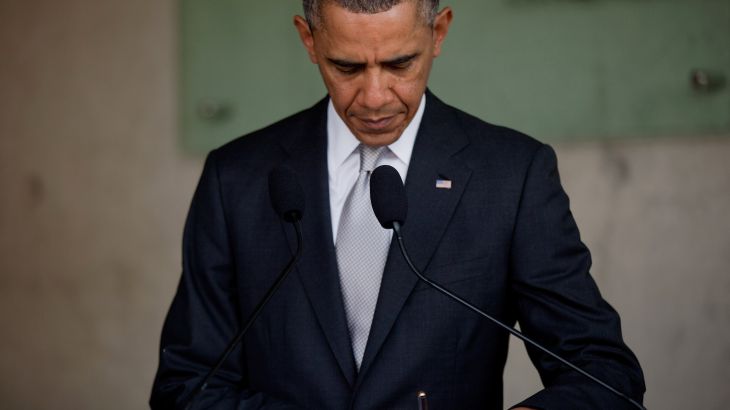
‘Big Brother’ Obama?
We ask under what authority the US monitors the world’s phone calls and internet usage.
On Saturday, the Guardian reported from a secret directive that US President Barack Obama has ordered his senior national security and intelligence officials to draw up a list of potential overseas targets for US cyber attacks.
This is not just a condition that's unique to the United States, governments all around the world have much more powerful tools to surveil their people - this is the condition of the modern world ...
“With respect to the internet and emails, this does not apply to US citizens, and it does not apply to people living in the United States,” Obama said.
His comments follow news that the National Security Agency (NSA) and the Federal Bureau of Investigation (FBI) are tapping directly into the central servers of nine leading US internet companies to spy on foreigners.
According to the Washington Post newspaper, even though US citizens were not the intended targets of surveillance, this has allowed investigators to examine emails, photos and other documents of tens of millions of Americans that can be used to track people and their contacts over time.
This week’s revelations about the size and scope of the US surveillance state come at an awkward time for Obama.
In the days before the arrival of China’s President Xi Jinping for meetings in California, reporters had been briefed to expect the agenda to be dominated by the US president’s complaints about China’s alleged hacking of US secrets.
Xi and the rest of the world now know the US National Security agency has been tapping directly into the central servers of nine American internet companies to monitor the email and internet data of the rest of the world.
US spy agencies don't look at themselves as governed by foreign laws but it is the laws of foreign countries that protect foreign citizens.
This is in addition to the Guardian‘s revelation that the US National Security Agency has been collecting the telephone records of millions of US citizens.
On Friday, Obama defended the surveillance programmes.
“You know, when I came into this office, I made two commitments that are more than any commitment I make: number one, to keep the American people safe; and number two, to uphold the constitution. And that includes what I consider to be a constitutional right to privacy and an observance of civil liberties,” Obama said.
The director of national security, James Clapper, cited in a statement Section 702 of the Foreign Intelligence Surveillance Act, which was amended in 2008 to say:
“Notwithstanding any other provision of law, upon the issuance of an order in accordance with subsection (i)(3) or a determination under subsection (c)(2), the Attorney General and the Director of National Intelligence may authorize jointly, for a period of up to one year from the effective date of the authorization, the targeting of persons reasonably believed to be located outside the United States to acquire foreign intelligence information.”
So is the rest of the world fair game? Under what authority does the US monitor the world’s phone calls and internet usage?
Inside Story Americas, with presenter Shihab Rattansi, discusses with guests: Trevor Timm, a policy analyst at the Electronic Frontier Foundation; Michael Riley, a correspondent for Bloomberg News who has reported extensively on cyber-security and US surveillance efforts globally; Simon Rosenberg, the president of the New Democrat Network and a former adviser to Bill Clinton.
|
“It’s just absurd given that these broad, blanket orders cover literally every American, they are not targeted at all – this information has not really led to any real secrets from being exposed but it has shown the American public the type of surveillance that is being used against them and it is really concerning. – Trevor Timm, a policy analyst at the Electronic Frontier Foundation |